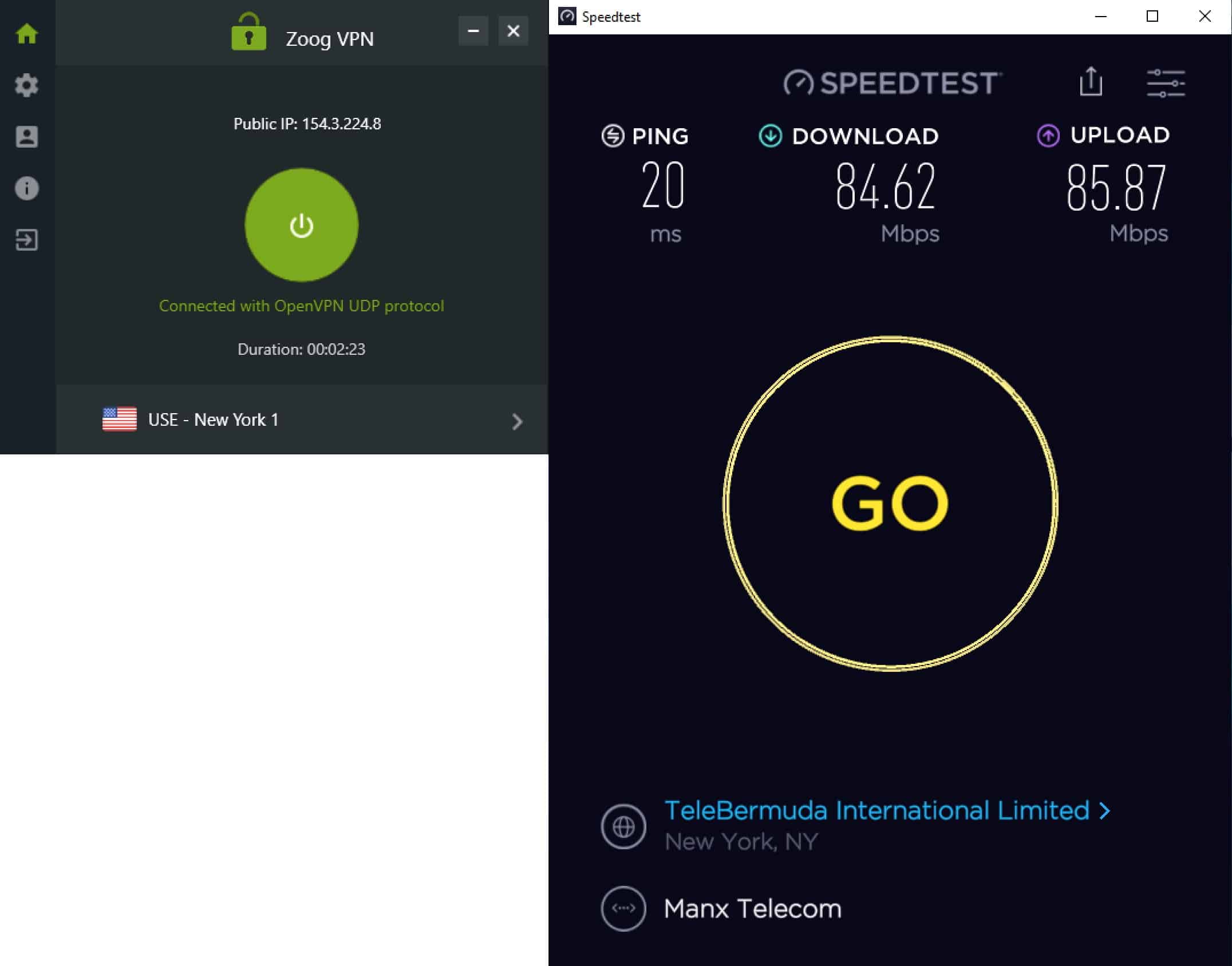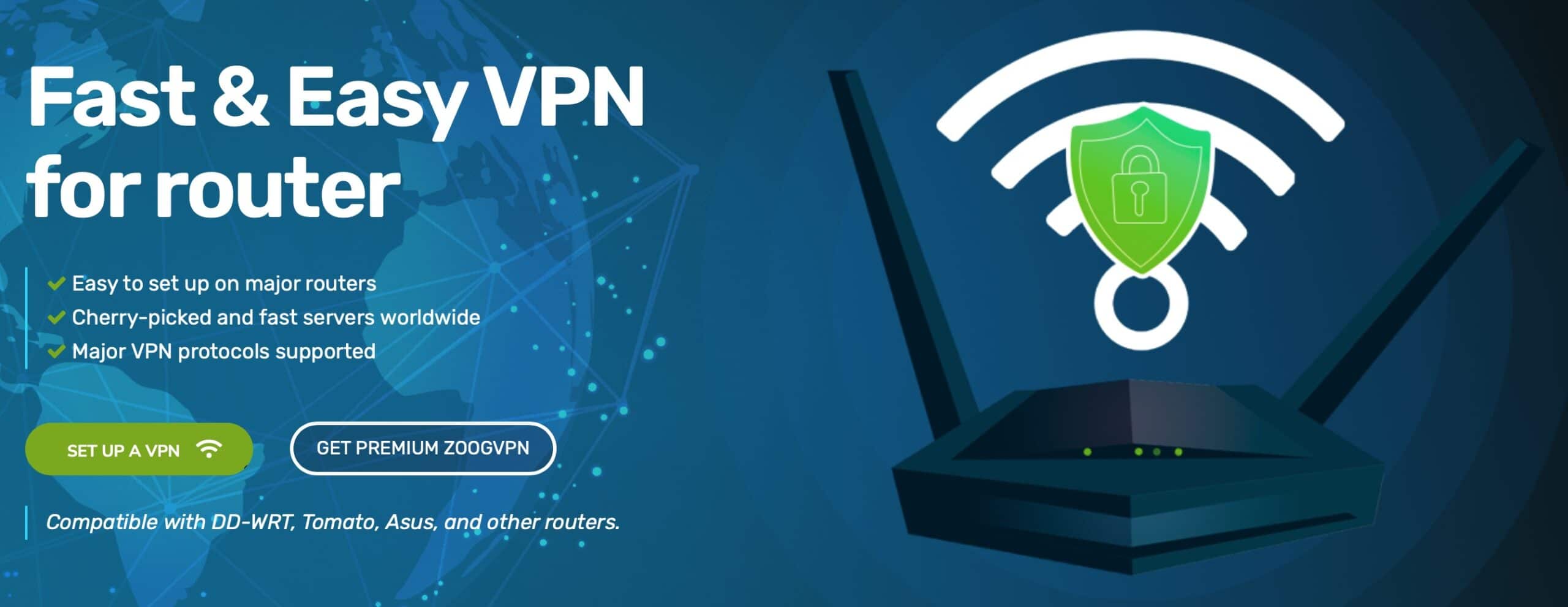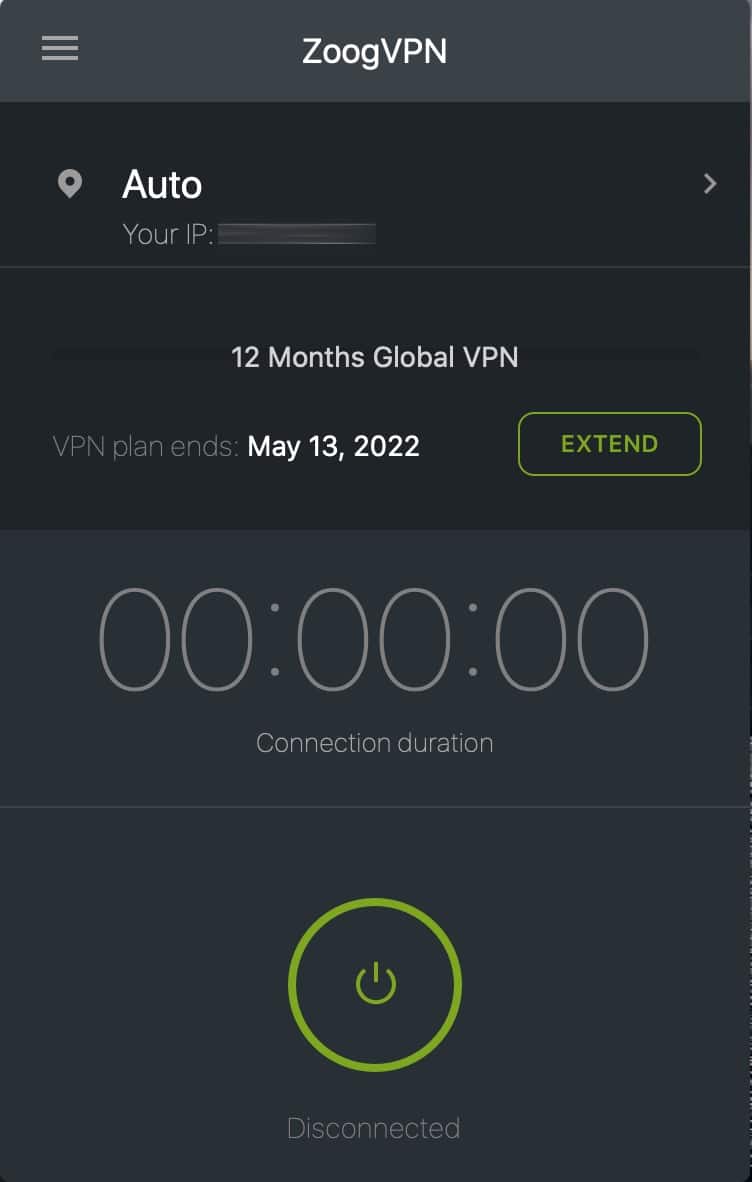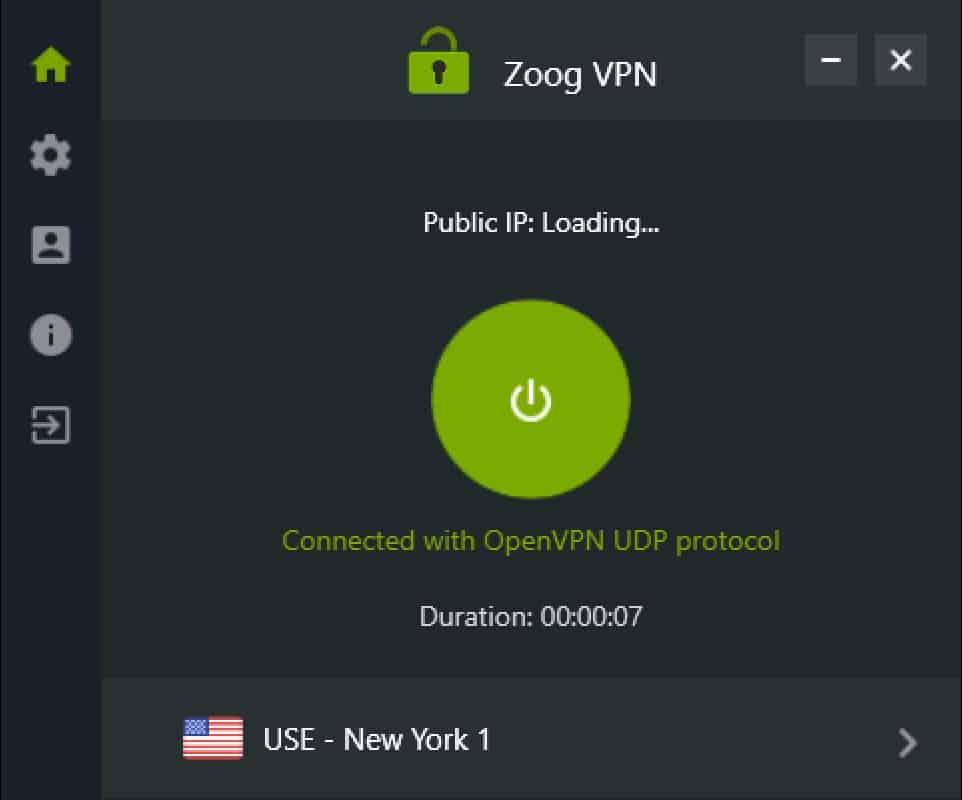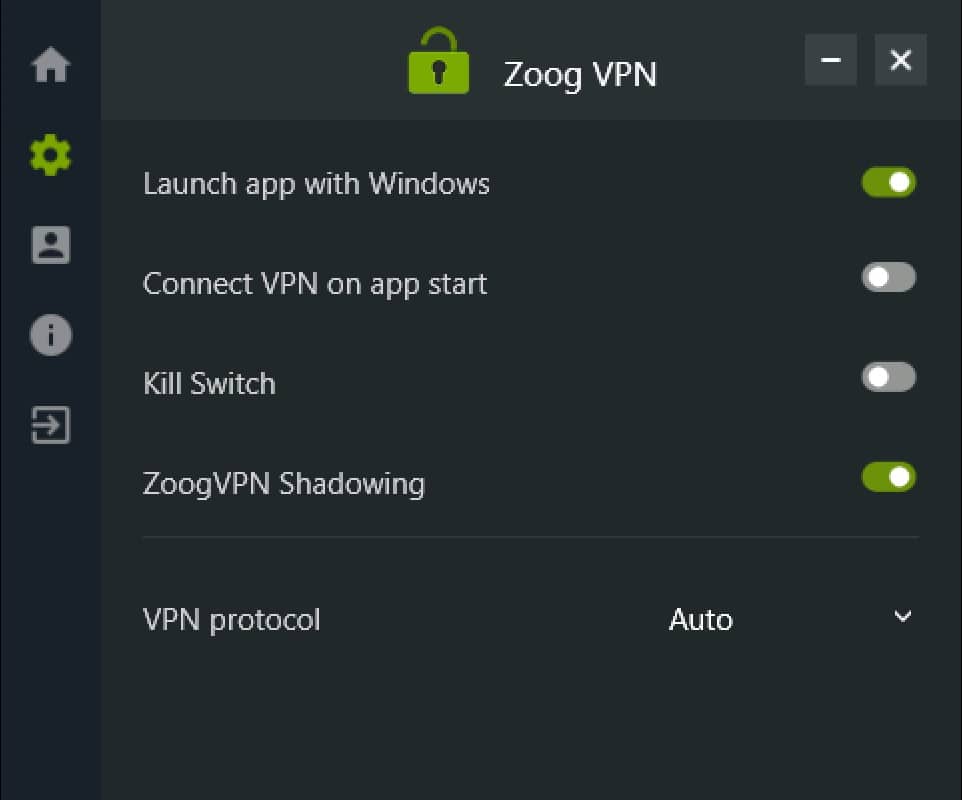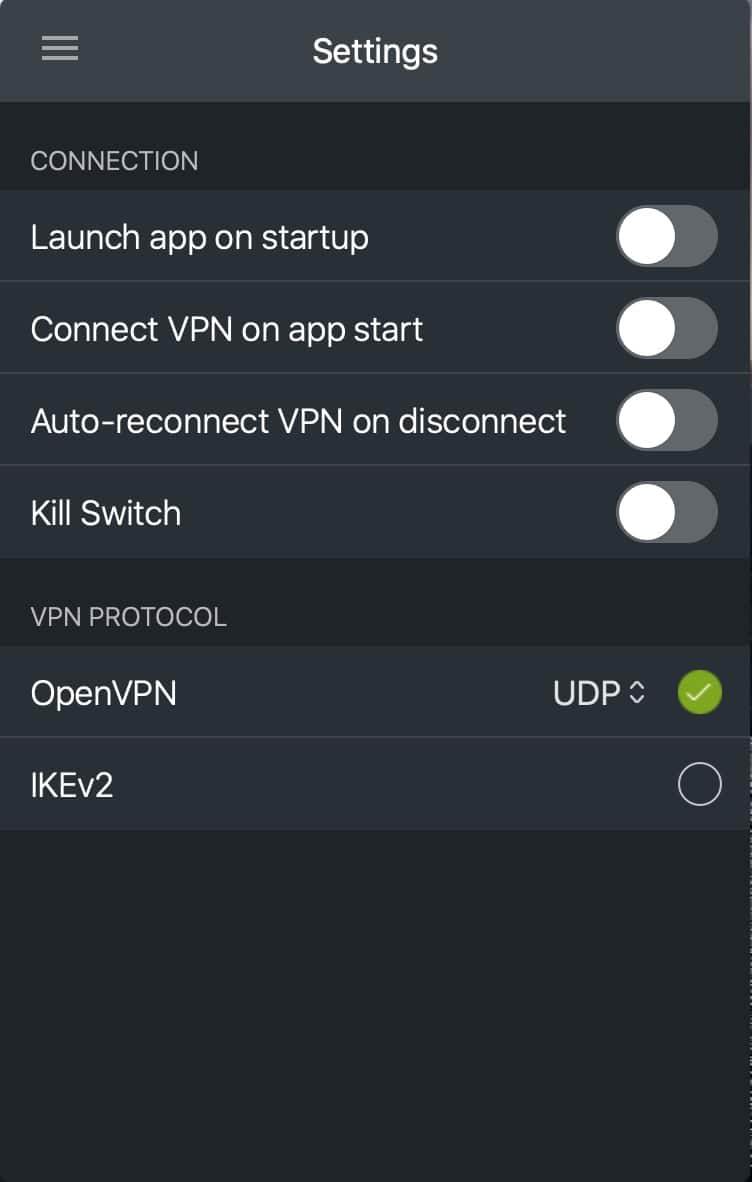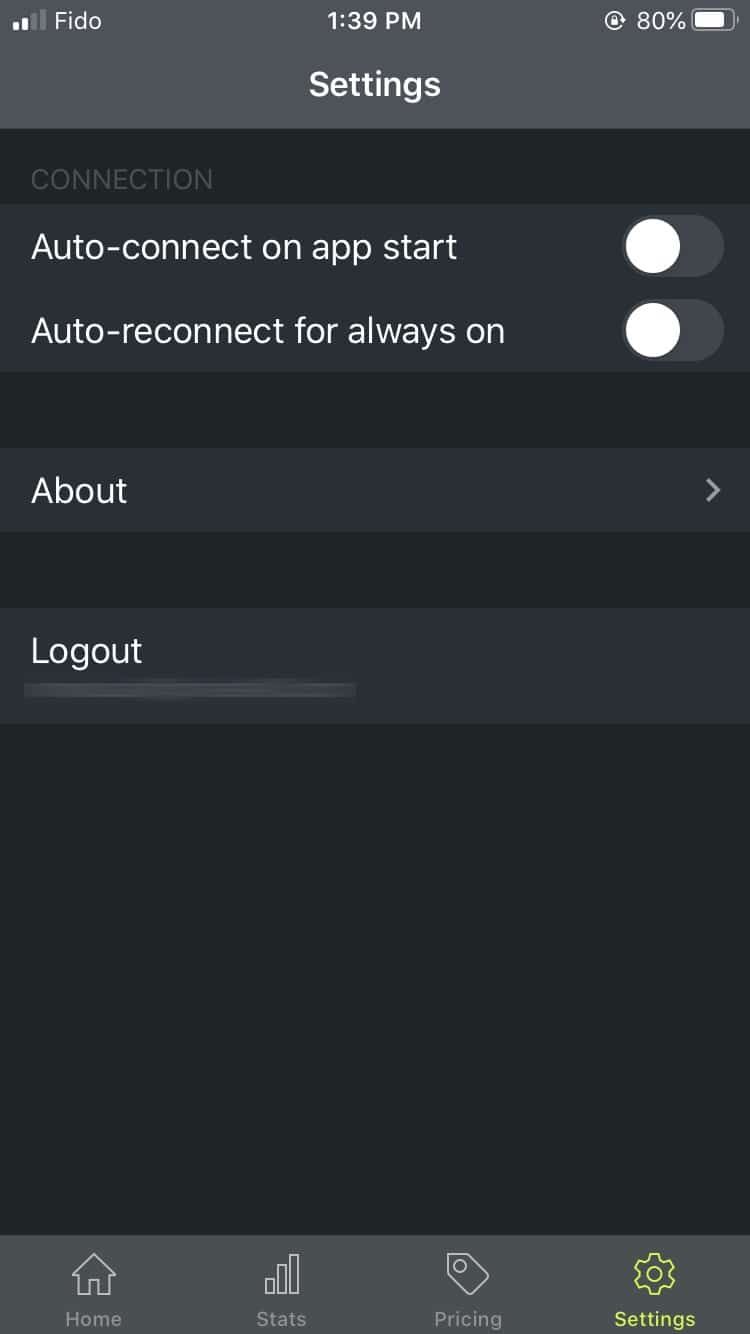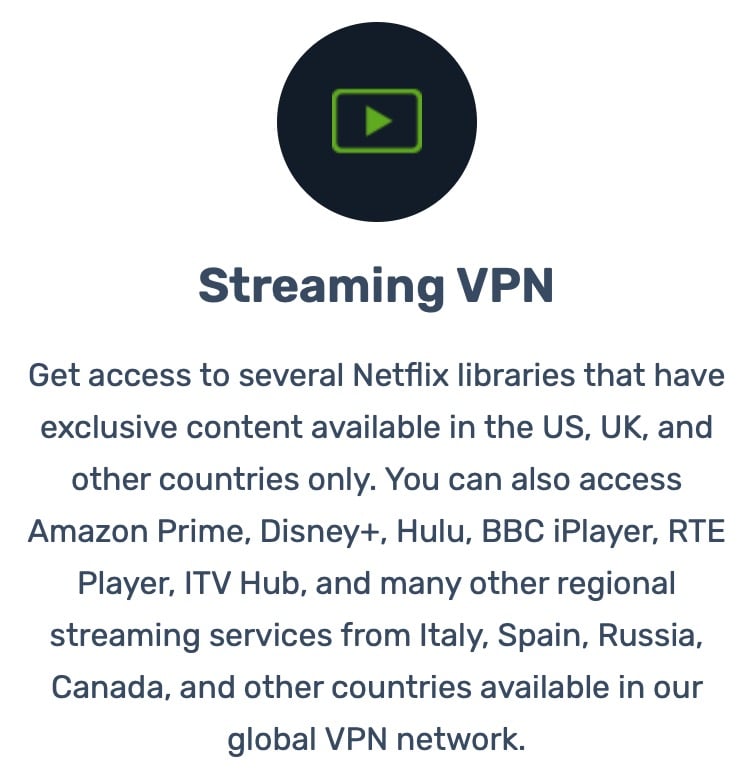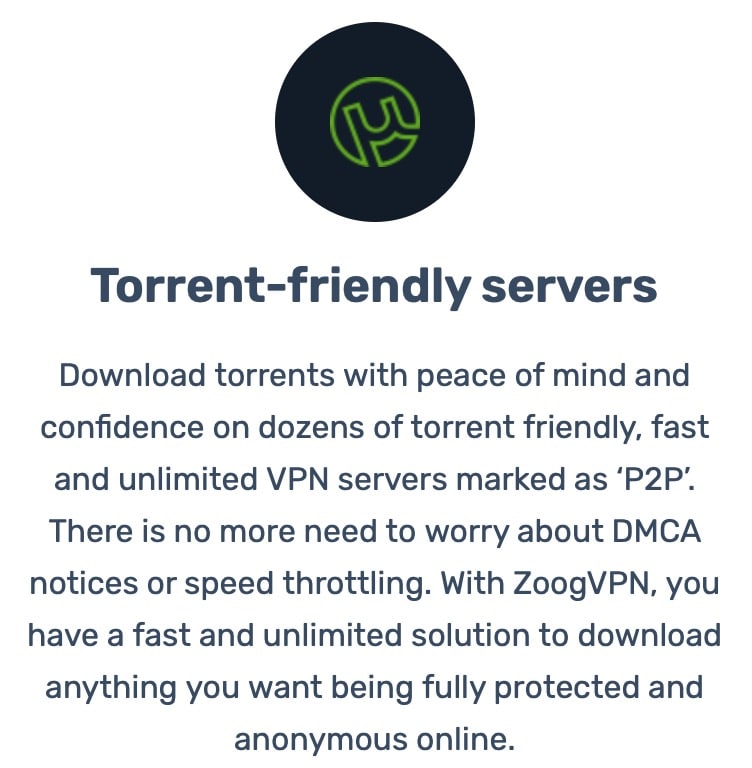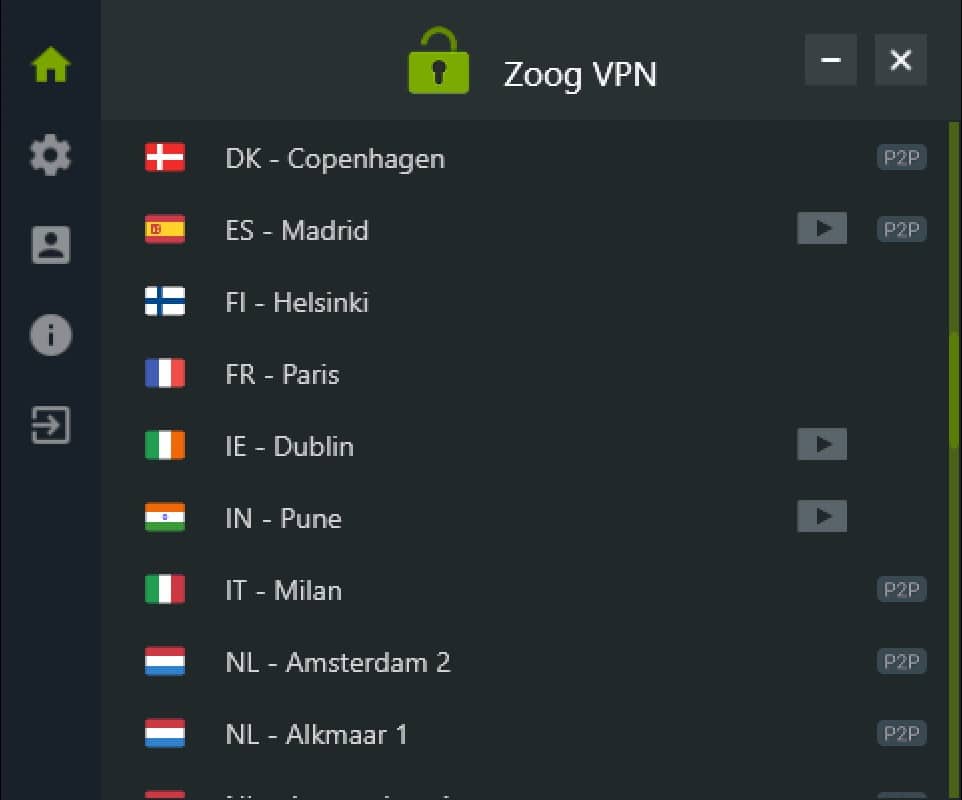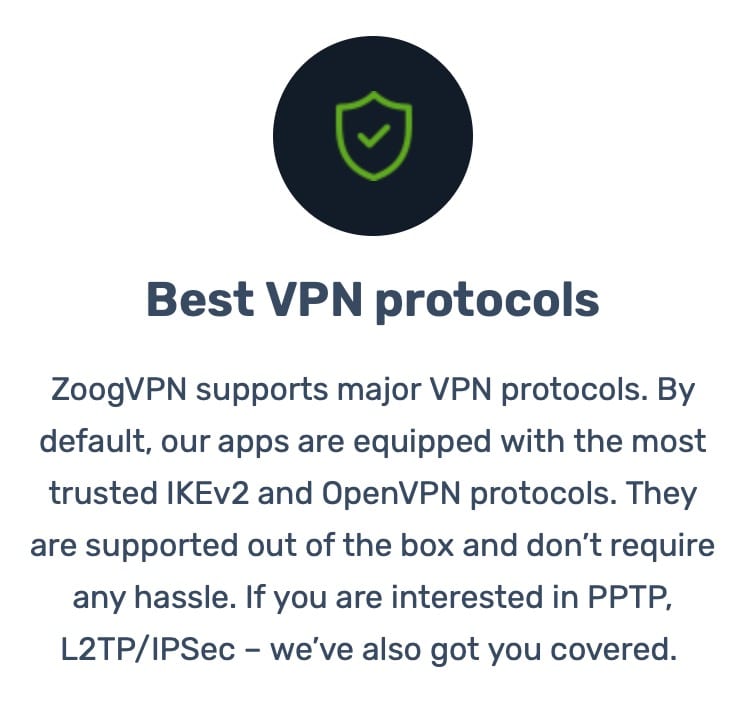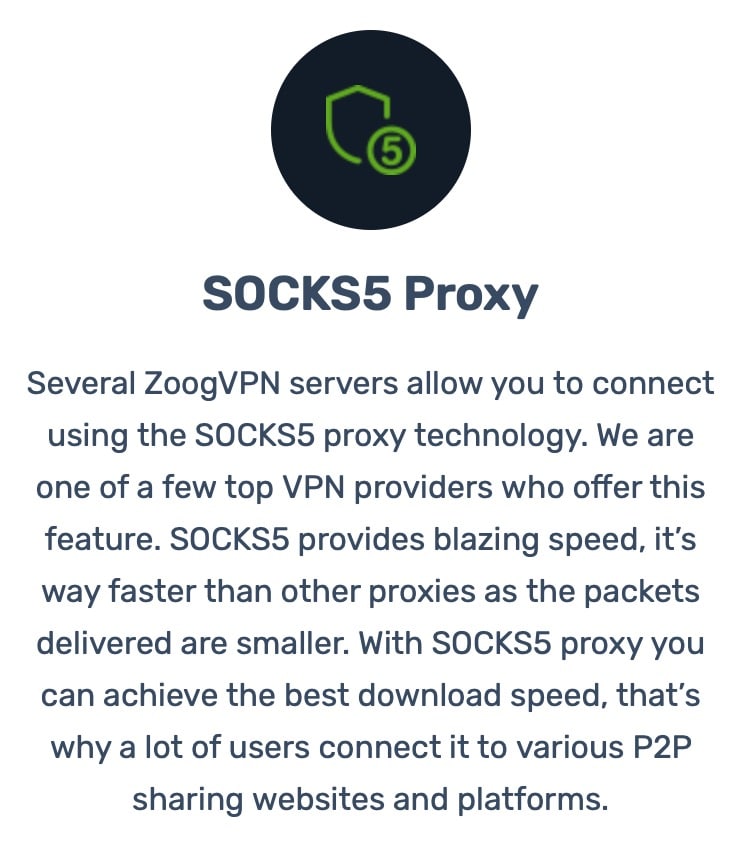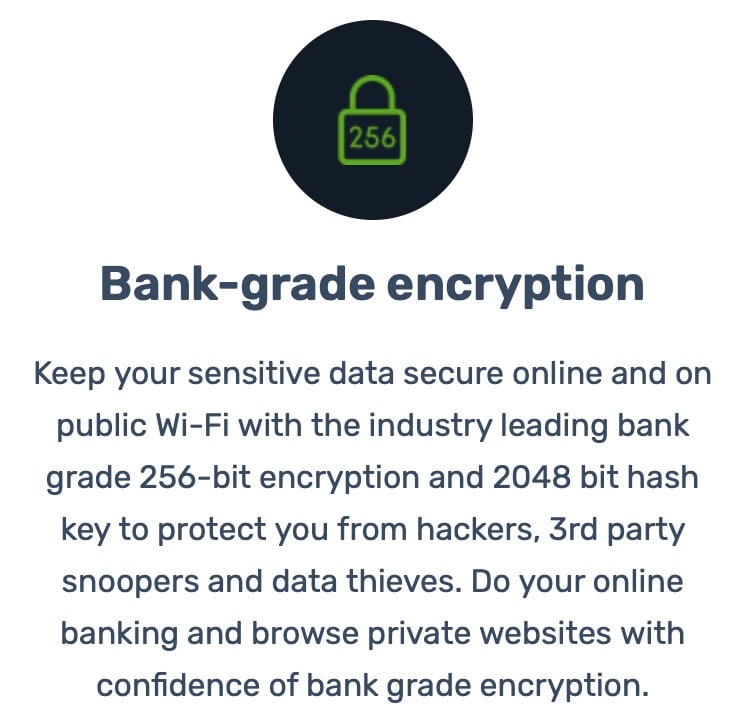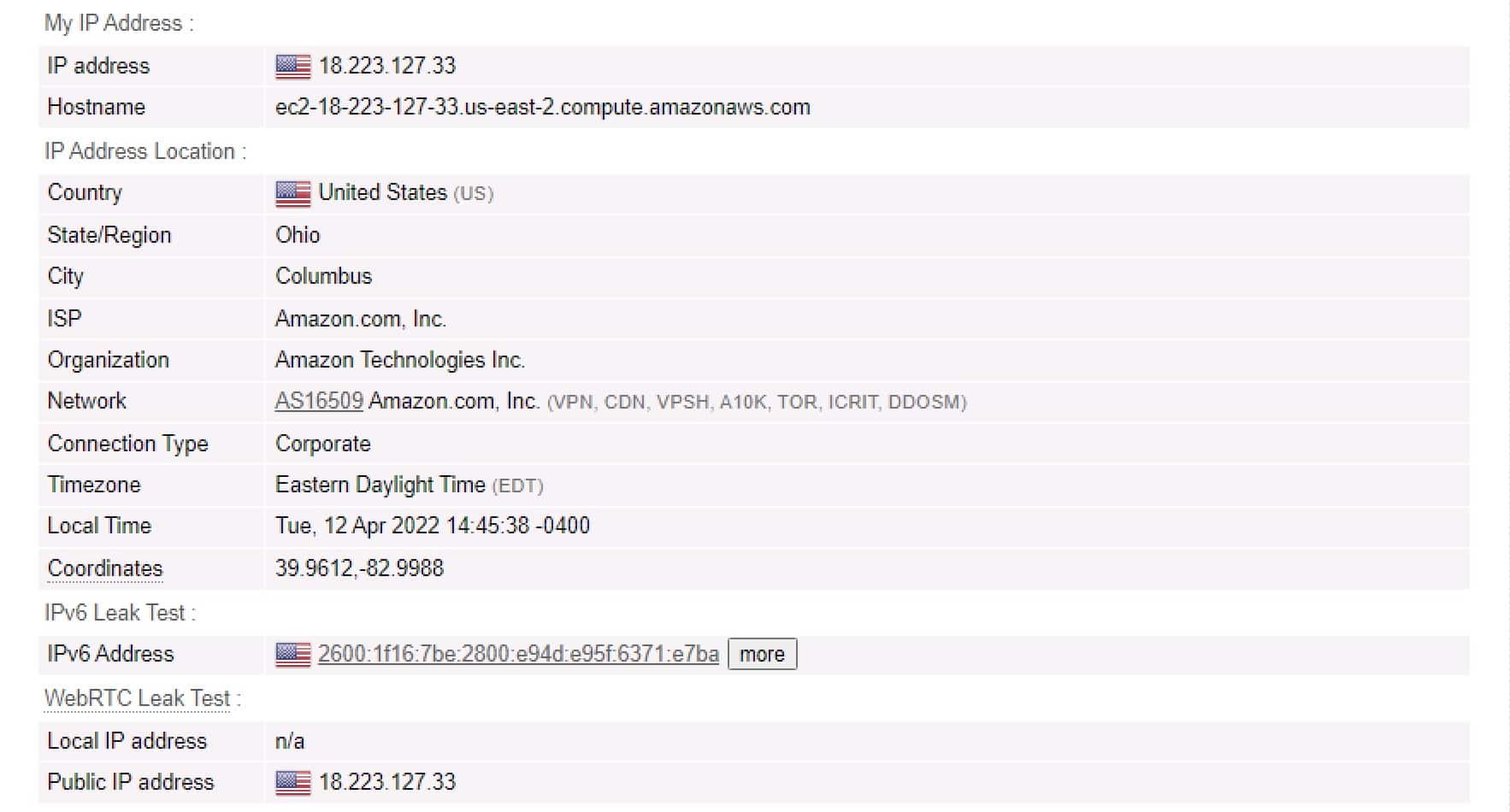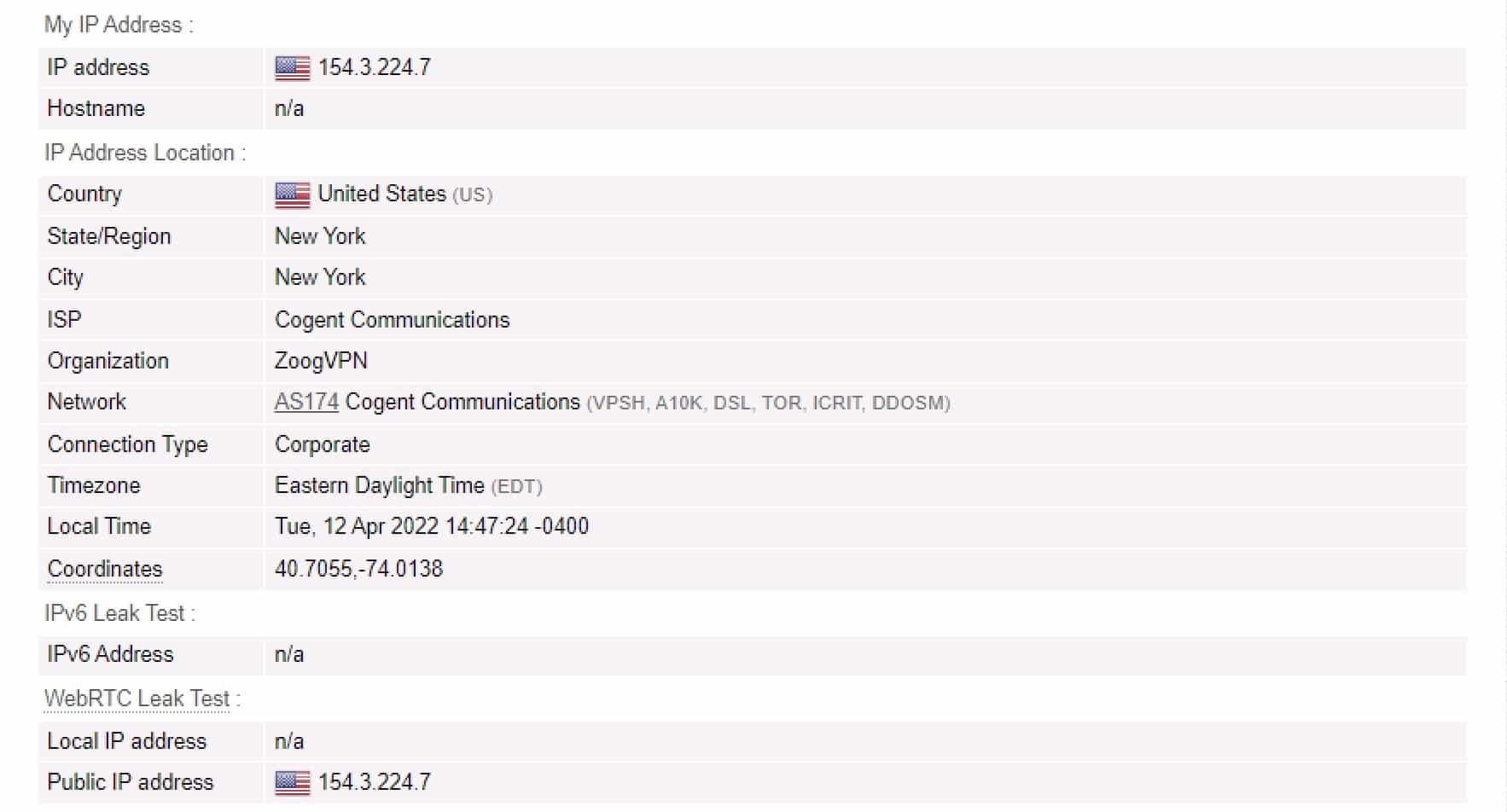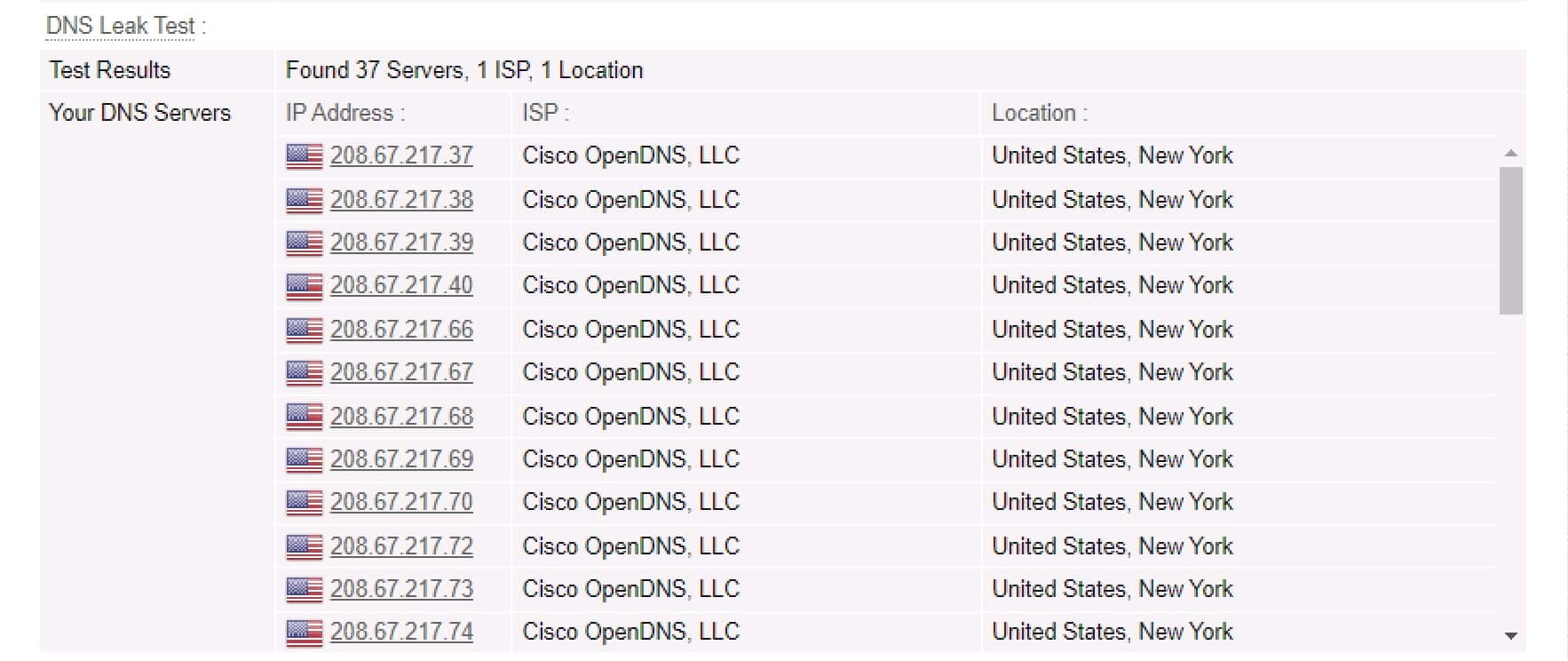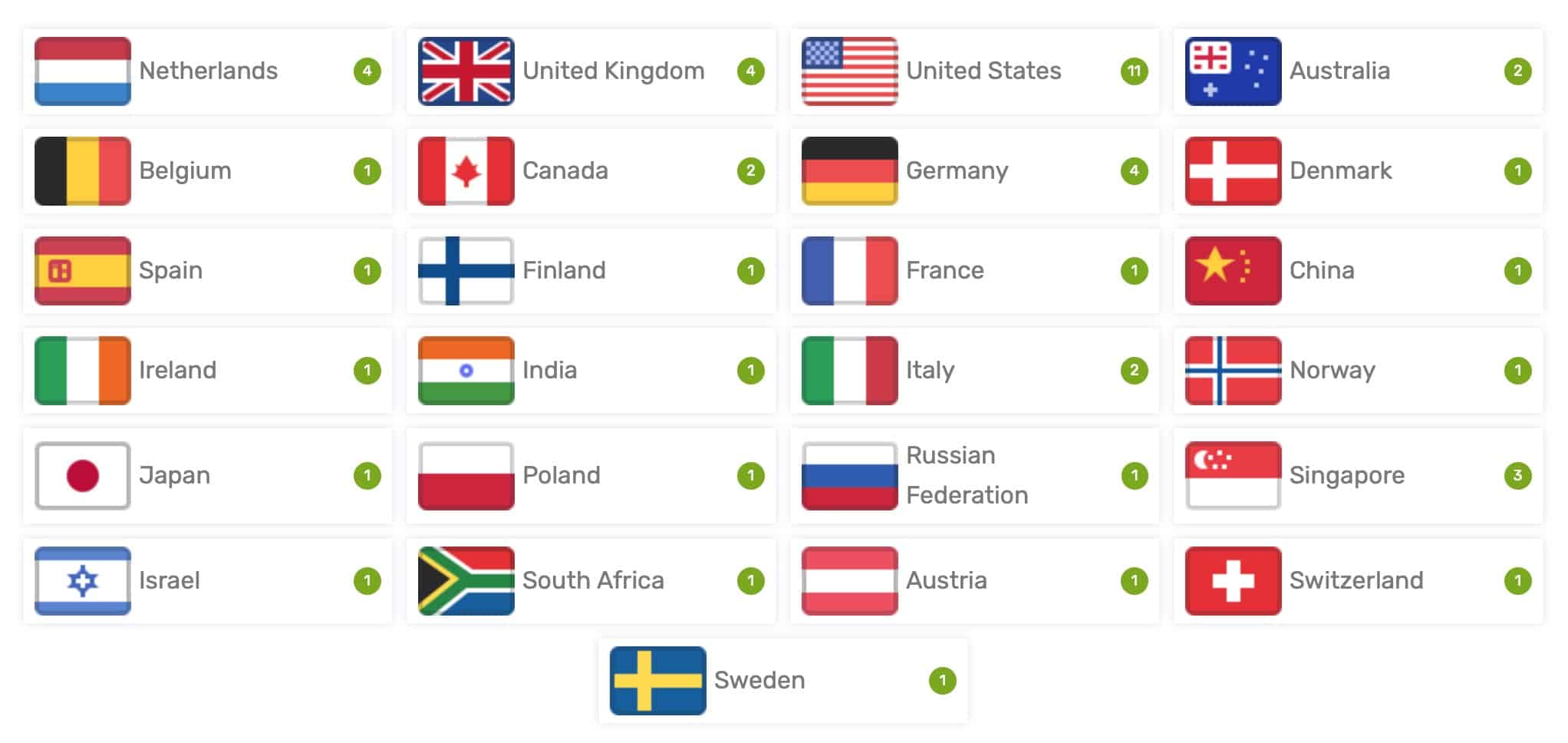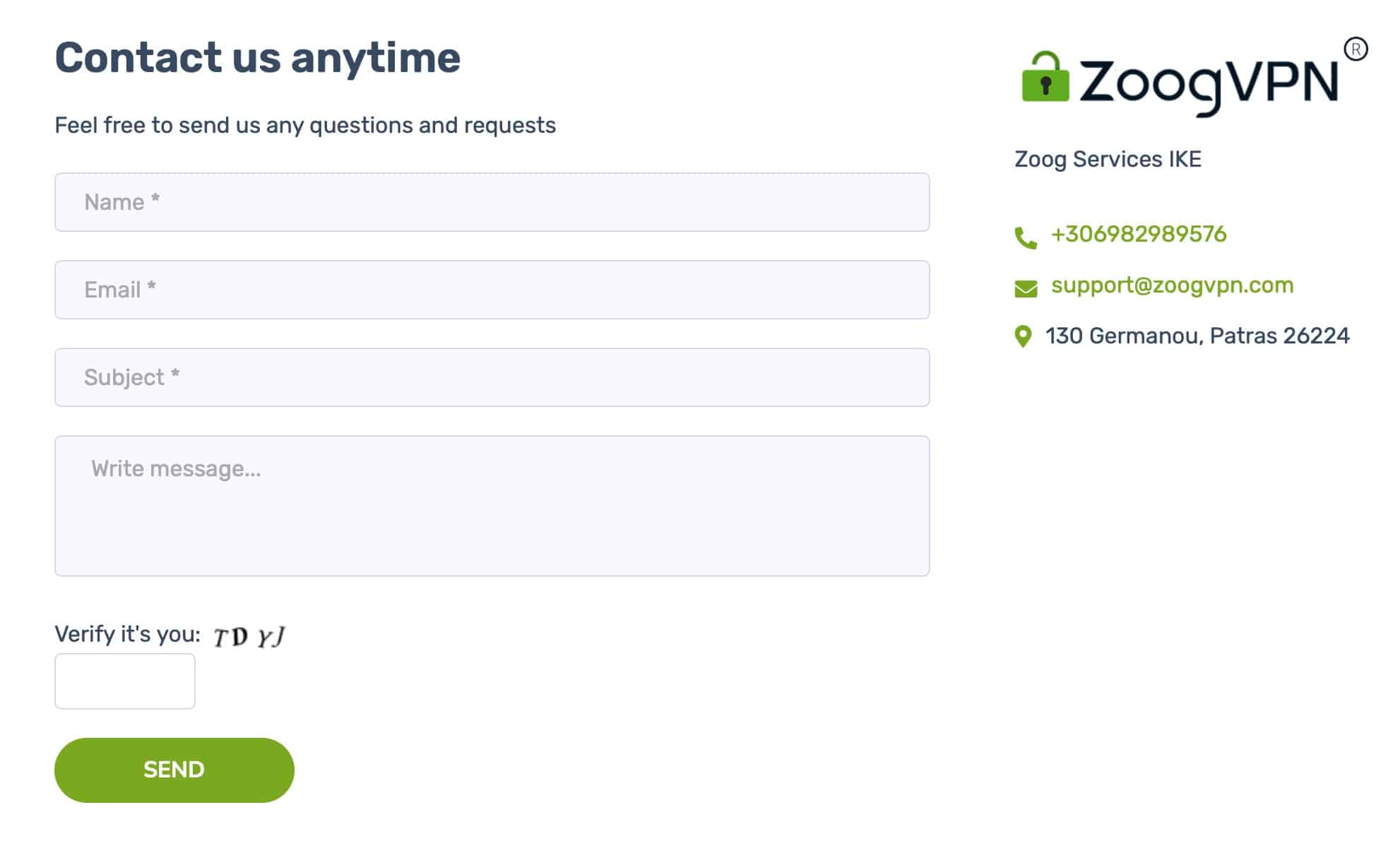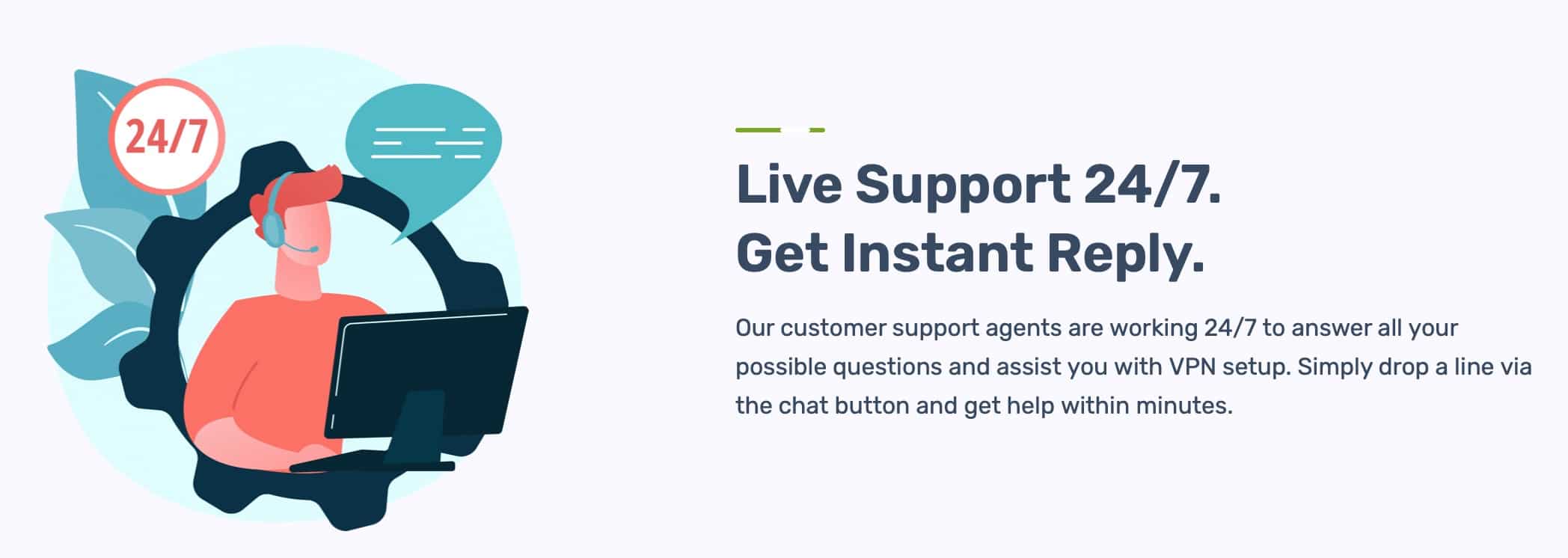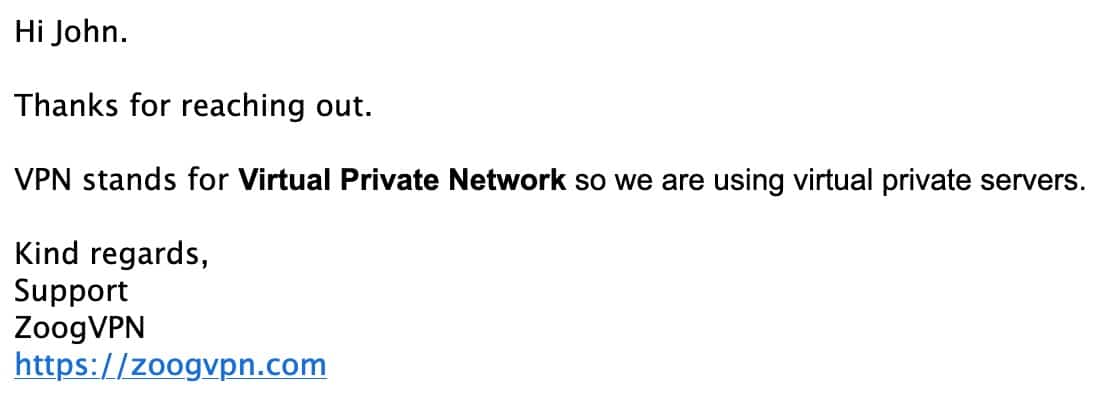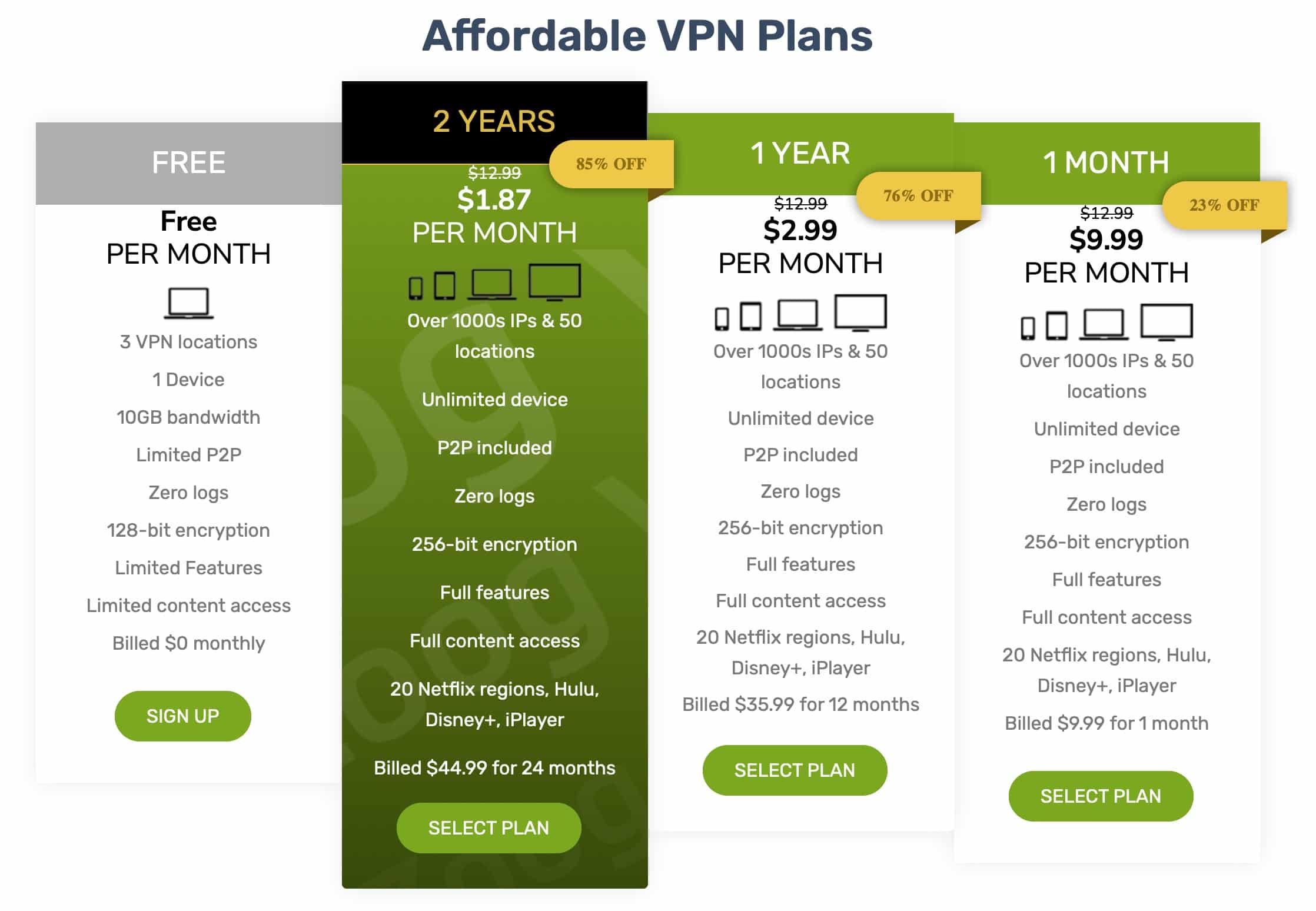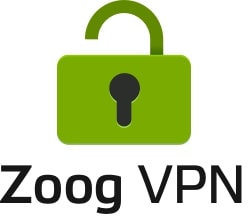
ZoogVPN appears to be one of the better smaller players in the industry. So I was curious to determine if my first impressions would be confirmed by experience.
This ZoogVPN review answers the following questions:
- How are ZoogVPN’s speeds?
- Can ZoogVPN work with streaming sites like Netflix and BBC iPlayer?
- How private and secure is ZoogVPN?
- What VPN protocols does it support?
- Does ZoogVPN work in China?
- How much does ZoogVPN cost?
I’ll be looking to answer these questions and more in this review. If you’ve got the time and want all the details, I recommend reading the full review. If not, you can read my summary below.
ZoogVPN Summary
ZoogVPN is a Greece-based VPN provider that was founded in 2013. It provides good speeds and a robust no-logging policy. It works well with many streaming sites and also provides some dedicated P2P servers. And its prices are reasonable. It offers dedicated apps for the major platforms (iOS, macOS, Windows, Android, and even FireTV and AndroidTV) and supports Linux and routers.
One downside is that its network of servers is relatively small, though it’s still decent. Another damper is that it doesn’t offer many “extra features,” like ad-blocking, split tunneling, or double-hop servers. And then there’s the fact that alongside IKEv2 and OpenVPN, ZoogVPN also supports PPTP and L2TP/IPsec, which are deprecated protocols. Still, it covers the basics, and its privacy policy is excellent.
All in all, I was surprised by ZoogVPN’s offering. In a good way.
ZoogVPN Key data
| OVERALL RANK: #23 of 62 VPNs | |
|---|---|
| Speed | Score: 8 |
| Average Speed*: | 68 Mbps |
| Video Streaming Support: | 4K UHD |
| Streaming | Score: 9 |
| Netflix: | Yes |
| Other Streaming Services: | Amazon Prime Video, Disney+, Hulu, BBC iPlayer |
| Security | Score: 8 |
| Encryption Type: | 256-bit AES |
| Kill Switch: | Yes |
| Log Policy: | No-logging |
| Protocols: | OpenVPN, IKEv2, L2TP, PPTP |
| Value for Money | Score: 7 |
| Lowest Monthly Cost: | $1.87 |
| Money Back Guarantee: | 7-day money-back guarantee |
| Website | https://zoogvpn.com |
How does ZoogVPN compare to other popular VPNs?
Here’s how ZoogVPN compares with NordVPN and ExpressVPN:
| No value | ZoogVPN | NordVPN | ExpressVPN |
| Website | zoogvpn.com | NordVPN.com | ExpressVPN.com | Average Speed (Mbps) | 68 Mbps | 300 Mbps | 300 Mbps | OpenVPN data encryption | 256 bit-AES | 256-bit AES | 256-bit AES | Kill Switch | Desktop only | Allows Torrenting | Connection logs | Some aggregated data | Unblocks Netflix US | Unblocks Prime Video | Unblocks Hulu | Unblocks BBC iPlayer | Lowest monthly cost | $2.49 | $3.39 | $4.99 | Money back guarantee | 7 days | 30 days | 30 days | Overall rating | 7 | 9.7 | 9.3 |
|---|---|---|---|
| Best deal (per month) | $2.49 85% OFF a 2 year plan | $3.39 Up to 76% off 2 year plans + free Amazon Gift Card | $4.99 SAVE: 61% + 4 months free on 2 year plans |
ClearVPN pros and cons
Pros:
- Good speeds
- Unblocks many streaming sites
- Kill switch
- Excellent prices
- Supports strong VPN protocols (IKEv2, OpenVPN)
- Supports many platforms
- Supports torrenting
- Good privacy policy
Cons:
- Doesn’t support many (any?) “extra features” like split tunneling, ad-blocking, etc.
- Also supports weak VPN protocols (PPTP, L2TP/IPsec)
- Price of the monthly plan is quite high
Speed: How fast is ZoogVPN?
Ah, speed… Every internet user wants speed. VPN users want speed and privacy. Any VPN will slow your connection down to some degree. The trick is to have it be as unnoticeable as possible. Let’s look at how ZoogVPN fared in my testing.
So across all locations and times tested, ZoogVPN got an average score of 68 Mbps. I would rate Zoog’s speeds as being OK – not the worst I’ve seen and not the best.
One thing that is usually expected is that the closer your actual physical location is to the VPN server you’re connecting to, the faster your speeds should be. However, with ZoogVPN, that didn’t happen. The fastest server was the furthest from my actual location, and the closest location came in second. That smelled like virtual servers rather than physical ones to me. I wrote to ZoogVPN’s support department to find out. It confirmed that it uses virtual servers throughout its network (more on that below).
The servers I tested were located in North America, Europe, and Asia – and, again, the results were OK. Broadband speeds being what they are today (i.e., quite fast), there’s a chance you could feel a slowdown while using ZoogVPN. It might not be a massive dip in speed, but it could be enough to notice. Below are the average speeds for servers in each region:
- North America (where I am located): 83 Mbps
- Asia: 89 Mbps
- Europe: 32 Mbps
I used OpenVPN over UDP in my testing. ZoogVPN supports OpenVPN (UDP and TCP) and IKEv2 (and PPTP and L2TP for legacy reasons – more on that below). I would have liked to see WireGuard support, but we’re not there yet with Zoog.
As usual, I also tested ZoogVPN with online gaming, and it worked well in general. However, on some of the servers I tested, I apparently didn’t have any traffic flowing even though I was connected. Connecting to a different server fixed this immediately each time. But that’s the thing: it happened multiple times, and I had to disconnect and reconnect to be able to go about my business.
ZoogVPN is a bit of a mixed bag when it comes to speed.
See also: Fastest VPNs
Supported devices
ZoogVPN supports a lot of devices – which is nice to see. It supports:
That’s quite a few devices. However, it should be noted that ZoogVPN only provides a native app for macOS, Windows, iOS, and Android. The other devices connect to ZoogVPN’s network through their native settings, and tutorials are provided for each device.
Routers
ZoogVPN supports routers and provides tutorials on setting up a VPN connection on routers with either the Tomato firmware (OpenVPN) or DD-WRT (OpenVPN, L2TP, PPTP). I’m sure it would also work on OpenWRT, pfSense, and OPNSense by adapting the existing tutorials.
Setting up a VPN connection on your router has a few benefits, like not needing to use an app – you’ll be routing your traffic through the VPN tunnel as soon as you connect to the router. Another nice benefit is the ability to bypass the limit on the number of simultaneous VPN connections. ZoogVPN doesn’t cap the number of simultaneous connections, but many (if not most) VPN providers do. Still, you can connect as many devices as you want to the VPN-enabled router, and it will only count as one connection (the router).
For more information on setting up a VPN connection on a router, check out our guide on VPN routers.
The ZoogVPN app
ZoogVPN provides a native app for the “big” platforms. That’s macOS, Windows, iOS, and Android. And while the app is well-designed and easy to use, it doesn’t share the same features on all platforms.
The Windows app appears to be the most full-featured of them all.
There’s a simple Settings page where you can enable things like autostart, the kill switch, and Zoog Shadowing – obfuscated connections for restricted geographies.
The macOS app appears to lack the shadowing feature.
The mobile app appears to lack the kill switch as well as the shadowing feature.
I realize that many VPN providers offer different features in different apps, which usually comes down to platform restrictions. But in the case of a kill switch, I’m pretty sure it’s possible on all four platforms for which ZoogVPN provides an app. Hopefully, this will come in the future.
All in all, I find ZoogVPN’s app to be intuitive, and it shouldn’t intimidate newer VPN users. Those who have used a commercial VPN before will feel right at home. You click the giant “Connect” button to connect. And you can select specific servers by clicking the location on the bottom to display the server list. Some servers are marked as P2P-friendly or streaming-friendly; most are general-purpose servers.
Streaming
ZoogVPN makes big claims on its website about streaming access – and it should. Streaming worked very well over ZoogVPN’s network. It doesn’t specifically mention Netflix, but I could access Netflix US just fine.
In my testing, I tried to access Amazon Prime Video, Disney+, Hulu, and BBC iPlayer. They all just worked on the first try. I was surprised because even with the bigger, tried, and tested VPN providers, it’s typical to have to do a bit of “server-surfing” to find a server that works. But I didn’t even need to do that with ZoogVPN. I may simply have been lucky on that day. But regardless of whether or not a bit of trial and error is required, you’ll be able to stream to your heart’s content using ZoogVPN.
As good as ZoogVPN’s streaming performance is, you may still want to check out our recommended VPNs for streaming.
Does ZoogVPN support torrenting?
It does. And it works well.
ZoogVPN offers dozens of P2P-friendly servers over which to torrent. In my testing, it worked perfectly well. Just connect to a torrent-friendly server and launch your torrent client.
My download speeds were good – no freezing, no lagging. However, keep in mind that the speed of your torrent downloads depends just as much on available bandwidth as on the number of seeds and peers. With a decent number of seeds and peers, you should be fine. Good stuff.
You can have a look at our recommended VPNs for torrenting.
Does ZoogVPN support split tunneling?
At this time, ZoogVPN doesn’t support split tunneling.
Split tunneling is a feature that has only grown in popularity since it was introduced. Split tunneling enables you to selectively route your traffic through the VPN tunnel or out your ISP gateway on an app-by-app basis. That means that you can send your streaming traffic through your regular ISP connection while routing the rest through the VPN tunnel. Or you could only send your P2P traffic through the VPN and send everything else through your ISP connection. Split tunneling is a versatile feature and can usually accommodate pretty much any scenario you can think of.
Hopefully, we’ll see ZoogVPN support split tunneling sooner rather than later. You can look at our recommended VPNs for split tunneling if it’s an important feature to you.
Security, privacy, and logging
Let’s take a look at ZoogVPN’s privacy policy. It’s crucial to not only refer to a VPN provider’s marketing when assessing its security and privacy practices. In my years reviewing VPNs, I’ve learned that “no logging” can mean many very different things.
Looking at Zoog’s privacy policy, we find this:
This is quite good. And I like that it takes the time to list all of the data points it proactively does not collect:
- Internet traffic
- Timestamps
- User IP addresses
- User log-ins/outs
I like this. It’s clear, and it’s fair.
In terms of what it does collect, we have this:
That means that ZoogVPN only collects your email address and (of course) your password. It also collects “total data transferred on our servers as aggregated upload/download.” And that’s fine.
On the whole, this is a very good privacy policy.
Another positive aspect of ZoogVPN’s security/privacy practices is that it provides a warrant canary.
A warrant canary is a document that a service provider publishes on a regular basis stating that it has not received a secret warrant or a gag order from law enforcement. If the provider ever does receive a warrant or a gag order, it will take the warrant canary down to let its user base know that the service has been compromised without violating the gag order. Good stuff.
In terms of VPN protocols, ZoogVPN supports:
- OpenVPN (TCP/UDP)
- IKEv2
- L2TP (for legacy purposes)
- PPTP (for legacy purposes)
OpenVPN and IKEv2 are both very secure protocols. L2TP and particularly PPTP are deprecated and shouldn’t be used. I understand that some users may need access to those protocols for legacy reasons. But on the whole, these protocols should not be used, and those in the “legacy” situation should take steps to move onto secure protocols. That’s my two cents. I prefer it when VPN providers simply do not support deprecated protocols.
ZoogVPN also provides a SOCKS5 proxy for those favoring speed over security. Zoog’s proxy does not encrypt your traffic and only works in your web browser or torrent client (or whatever application that supports proxy servers). It will however substitute your public IP address with that of the server.
Zoog uses AES-256 bit encryption and 2048-bit hash keys in terms of encryption.
Let’s now move on to IP address and DNS leak tests. I was glad to see that I didn’t suffer any leaks (IP address or DNS) while connected to ZoogVPN’s network.
IP Test – No VPN
IP Test – With VPN
DNS Test – No VPN
DNS Test – With VPN
On the whole, I’m pleased with ZoogVPN’s privacy and security practices. ZoogVPN holds itself to a much higher standard than your typical “small and unknown” VPN provider. Some of its competitors in that space should take note.
Server locations
ZoogVPN’s network contains 49 VPN servers located in 26 countries.
Many people prefer it when VPN providers have thousands of servers on offer. And that’s fine. Personally, however, I prefer smaller VPN networks. As I’ve said before, it makes me feel as if a bit more care goes into the configuration of each server and that the team behind the service is more involved in the configuration. With providers that provide access to thousands and thousands of servers, one can even wonder if they’re involved at all in the configuration of these thousands upon thousands of servers. They could be – this is only about impressions.
Anyway, in my book, 49 servers are more than enough. But different folks have different use cases. If you need a VPN provider that hosts a vast number of servers, ZoogVPN may not be for you.
Does ZoogVPN work in China?
It does. Because I’m not in China, I have no way of testing this. But using its ZoogShadowing feature, it can make obfuscated connections in regions where the internet is heavily censored, such as China. There may be a bit of trial and error involved, as is usually the case, but it should work, according to ZoogVPN.
To learn more about connecting to a VPN from China, have a look at our recommended VPNs for China.
How is ZoogVPN’s customer service?
It’s pretty good – with a “but.” In the section on speed, I mentioned that I wrote Zoog’s support department to find out if it used virtual or physical servers. I contacted Zoog via email. Its website claims to provide support over email, phone, and live chat. The only trouble is that the live chat it mentions is nowhere to be found. That was my first caveat.
The second caveat is that while I got my response rather quickly (within roughly an hour and a half), that my reply was polite, and that it answered my question, the reply itself doesn’t make much sense:
I never use my real name for these support requests…
So, apparently, because VPN stands for Virtual Private Network, all servers in the network are virtual. That simply isn’t so. Many VPN providers out there only provide access to physical servers.
But let’s be clear, virtual servers don’t necessarily represent a security risk or reduce your privacy. And virtual servers don’t necessarily mean virtual locations, either. Given the speed test results, that’s just my hunch. But whether that’s the case or not, it’s not a security risk. If it’s the case, it simply means you’re not in the country you appear to be in, even though your public IP address is from that region. So it’s not that it’s a huge deal that Zoog’s servers (or locations) are all virtual. It’s more that it illustrates how poorly its support department understands VPN technology. And that, in turn, is a bit of a turn-off to those who want their VPN provider to be at the top of their game.
So while the support itself is fine, some of its representatives should perhaps sign-up for a VPN 101 course.
How much does ZoogVPN cost?
ZoogVPN offers three different subscription terms:
- One month: $9.99
- One year: $2.99 per month – works out to $35.88 per year
- Two years: $1.87 per month – works out to $44.88 for two years ($22.44 per year)
All subscriptions come with a seven-day money-back guarantee.
So what do I think of these prices? It’s a bit of a mixed bag.
ZoogVPN’s monthly price is pretty high. It goes above the price charged by many of the more prominent VPN providers that tend to shower you with “extra features” (of which ZoogVPN doesn’t have very many). But looking at its yearly/bi-yearly plans, the prices become much more palatable. $1.87 per month for VPN service is an excellent price indeed. It’s too bad that you would need to sign-up for such a long term to get that price.
I also feel that smaller VPN providers are (or at least should be) incentivized to offer good prices on their monthly plans. Because they’re not as well-known as other players in the commercial VPN space, people may not be willing to hand over $10 to try the service when they can sign-up to a well-known and trusted provider for less (sometimes much less).
So, in a nutshell, it’s not that ZoogVPN’s prices are bad – they’re not. It’s just that having a lower-cost point of entry could help it grow its user base. As it stands now, if you want an affordable plan with ZoogVPN, you’ll have to commit to at least one year. That’s too bad – even if those prices are quite good.
Do I recommend ZoogVPN?
Kind of… ZoogVPN is clearly one of the better “up and coming” VPN providers that I’ve seen. There are a few caveats, but by and large, it’s a lot better than many of the smaller stature VPN providers I’ve reviewed. And it’s nice to see the better players flourish. So in that sense, I would recommend ZoogVPN to those wanting to try a smaller provider.
However, given the state of the commercial VPN market, in which big players offer tons of features for little money, it’s difficult to outright recommend Zoog to everyone. You’ll quite simply get a better bang for your buck by going with an established player (such as the ones listed below).
So while I may not be able to thoroughly recommend ZoogVPN just yet, I will say this: ZoogVPN is the best small VPN provider I’ve seen. Given how poorly VPN providers in that space perform, my statement doesn’t say that much. But if there were one small provider I could imagine “graduating” to the big leagues one day, it would be Zoog.
ZoogVPN alternatives
NordVPN
NordVPN is another tried and trusted VPN service. It’s based in Panama and provides a wealth of features for security, privacy, and convenience. Ad-blocking, DNS leak protection, robust encryption, and VPN kill switch have you covered on the security front. A strict no-logging policy, a thoughtful Privacy Policy, and anonymous payments have your back for privacy. Dedicated P2P servers, native apps for every major platform, and up to six simultaneous connections (or more with a VPN router) make NordVPN a very user-friendly service.
ExpressVPN
ExpressVPN is a very well-known player in the commercial VPN market and it benefits from an excellent reputation. Its privacy and security practices are top notch. All VPN servers run from volatile memory (RAM) and boot from read-only disks. This setup pretty much guarantees that no residual data (logs) can exist on the system’s hard drives, which is great for user privacy. ExpressVPN may be a bit more expensive than its competitors, but it’s fast, secure, unblocks streaming sites, and works in China.
Surfshark
Surfshark is another provider worth trying out. I think it may be the cheapest VPN service I’ve seen, with subscriptions starting at only $1.99/month. Surfashark supports only secure protocols and plays well with streaming sites. It adheres to its strict no-logging policy and works in China too. Surfshark also allows an unlimited number of simultaneous connections. It’s definitely worth checking out.
Methodology used for testing
Below you’ll find the criteria used to assess the VPNs we review. It’s critical to be consistent across the board so that our reviews are as objective as possible and that we’re not comparing apples to oranges. For that reason, we want to publicize our criteria.
Speed
Speed will always be one of the most crucial factors for any VPN. Aside from being annoying, slow speeds can prevent you from streaming or even browsing the web. To ensure we address this issue, all of our recommended VPNs scored very high in our most recent speed tests.
Apps & ease of use
VPNs have gone mainstream. More and more people are using VPNs today and for more varied reasons than ever. So app design and ease of use are more critical than ever. We look at the client apps’ UI, features, supported operating systems, and complexity.
Streaming services
It isn’t always easy to access streaming sites over a VPN. But many VPN providers claim to work on streaming sites – with varying degrees of success. Before recommending a VPN provider for streaming, we test VPNs against various popular streaming services, including Netflix, Amazon Prime Video, BBC iPlayer, HBO Max, Disney+, Hulu, etc.
Torrenting
File-sharers make up a large portion of VPN users. But not every VPN provider allows torrenting over its network, while others go as far as providing dedicated P2P servers. We look at each VPN’s policy around torrenting and run tests on those to see how well they handle file-sharing.
Security & privacy
This is why VPNs exist in the first place. We ask essential questions, like: What is the provider’s privacy policy like? What is its logging policy? What encryption protocols does the VPN support? Does it use robust ciphers? Does it support Perfect Forward Secrecy (PFS)? Is it vulnerable to IP or DNS leaks? These are all crucial questions, and we provide answers to all of them when assessing VPNs’ privacy and security practices.
The above represents a high-level view of our methodology. If you’d like more details, take a look at our full VPN testing methodology. This data-driven approach helps us better understand the services to recommend the right VPN to the right users.

